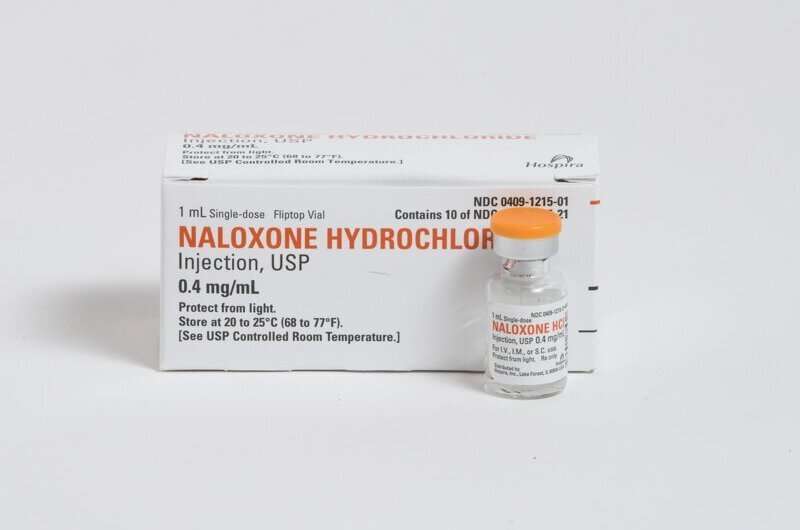This article has been reviewed according to Science X's editorial process and policies. Editors have highlighted the following attributes while ensuring the content's credibility:
fact-checked
peer-reviewed publication
trusted source
proofread
Addressing social determinants of health in post-overdose outreach associated with reduction in overdoses

Post-overdose outreach programs have proliferated as Massachusetts communities seek to respond to the opioid overdose crisis, driven by fentanyl in the illicit drug supply and exacerbated by the COVID-19 pandemic.
Post-overdose outreach, often by public health and public safety partnerships, seeks to connect overdose survivors with naloxone, overdose education, and treatment to reduce the high risk of a subsequent fatal overdose, but outreach strategy and methods vary widely by municipality.
New research from Boston Medical Center's Grayken Center for Addiction, published in the International Journal of Drug Policy, found that municipalities in Massachusetts that offered overdose survivors ways to access a wide range of social services to address social determinants of health—including housing, food, employment and transportation to medical care—experienced 21% fewer fatal overdoses compared to municipalities that offered less robust social services to overdose survivors.
The latest findings follow a previous study from BMC's Grayken Center that found establishing post-overdose outreach programs in Massachusetts cities and towns was associated with a 6% lower annual overdose rate than municipalities without outreach programs.
"Opioid overdoses continue to result in far too many deaths," said lead author Simeon Kimmel, MD, a general internal medicine and infectious disease physician at Boston Medical Center and Assistant Professor of Medicine at Boston University Chobanian & Avedisian School of Medicine.
"People who have experienced a non-fatal overdose are at a high risk of having a future overdose, making post-overdose outreach a critical opportunity to save lives. These findings suggest that post-overdose programs might most effectively intervene if they offer connections to social services as part of their outreach."
The authors studied 58 Massachusetts municipalities with post-overdose outreach programs, examining associations of five key program components with fatal opioid overdoses and opioid-related EMS calls from 2013 to 2019: outreach contact rate; naloxone distribution; coercive practices; harm reduction activities; and social service provision or referral.
Unlike social services, the study found no significant associations between outreach contact rate, naloxone distribution, coercive practices, or harm reduction activities with fatal overdose trends by municipality. However, the authors suggest social services might improve survivor engagement in overdose-related services like naloxone and medications for opioid use disorder or might reduce the risk of overdoses themselves.
The authors call for more research to determine how post-overdose outreach programs can most effectively reduce overdoses and engage survivors in effective treatment and prevention. This study received support from the U.S. Centers for Disease Control and the National Institute of Drug Abuse.
"Post-overdose outreach programs are an emerging strategy to prevent fatal overdoses for people who have survived an overdose," said senior author Alexander Walley, MD, of the Clinical Addiction Research and Education Unit at Boston Medical Center's Grayken Center for Addiction and Professor of Medicine at Boston University Chobanian & Avedisian School of Medicine.
"To best intervene, we need to understand what characteristics of these programs work, and which ones don't. This study suggests that access to housing, food, employment and transportation may be key in the success of these programs."
More information: Simeon D. Kimmel et al, Characteristics of post-overdose outreach programs and municipal-level opioid overdose in Massachusetts, International Journal of Drug Policy (2023). DOI: 10.1016/j.drugpo.2023.104164





















